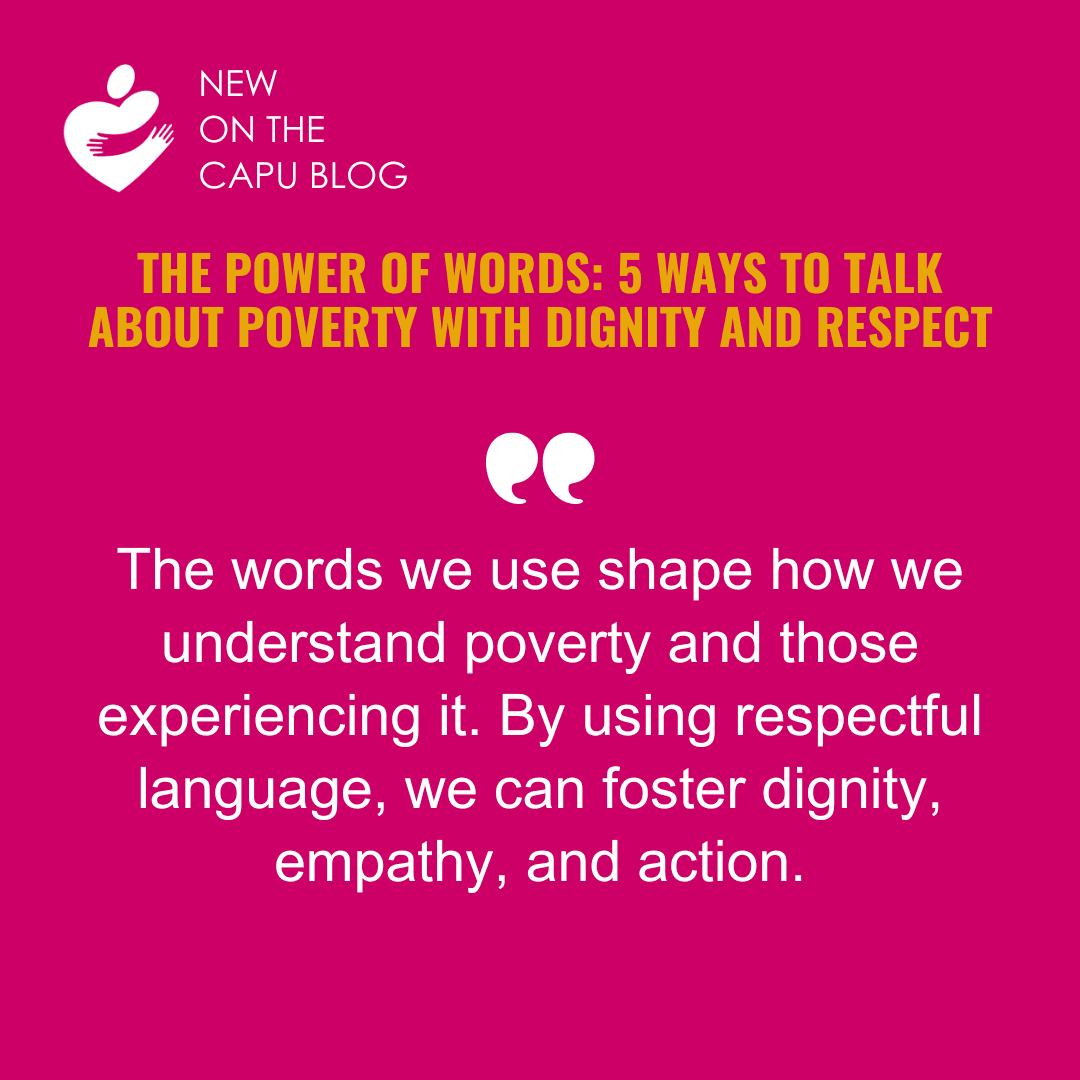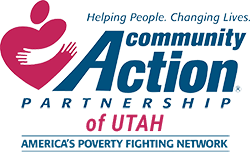
At CAP Utah, we believe that the words we use can either build bridges of understanding or create barriers of misunderstanding. When discussing poverty, the language we choose has the power to uplift or unintentionally harm. It’s essential to speak with empathy, accuracy, and respect to help reduce stigma and promote a more compassionate approach to addressing the challenges that individuals and communities face. In this blog post, we’ll explore five ways to improve how we talk about poverty and why these changes matter.
Why Terminology Matters
The way we talk about poverty doesn't just influence how others perceive it—it also impacts how those experiencing poverty see themselves. When we use language that acknowledges the temporary nature of financial hardship, we preserve dignity and foster hope. Reducing stigma and stereotypes is crucial; our words can either reinforce harmful perceptions or promote understanding and empathy. Moreover, the terminology we choose shapes public perception and can even influence policy decisions, affecting how society addresses poverty and its root causes.
5 Ways to Improve Our Language Around Poverty
1. Say, “Experiencing poverty” or “Experiencing resource insecurity” instead of “the poor” or “poor people”
Instead of labeling individuals by their financial situation, it’s more respectful to recognize that poverty is a condition they are experiencing, not a defining characteristic. This shift in language reminds us that financial difficulties are often temporary and that our focus should be on solutions rather than labels.
2. Say, “Economic instability” instead of “being broke”
“Economic instability” frames financial struggles as part of broader systemic issues, rather than implying personal failure. This language encourages a deeper understanding of the economic factors at play, leading to more effective discussions and solutions that address the root causes of financial hardship.
3. Say, “People experiencing homelessness” instead of “homeless people”
Using the phrase “people experiencing homelessness” helps us see the individual beyond their current housing situation. This terminology humanizes those facing housing challenges, reminding us that homelessness is often a temporary condition, not an identity.
4. Say, “Seeking assistance” instead of “on welfare”
The term “seeking assistance” removes the stigma often associated with receiving government aid. It promotes an environment where individuals feel supported rather than judged when they seek help during tough times.
5. Say, “Underserved communities” or “Disinvested communities” instead of “poor neighborhoods,” “slums,” or “ghettos”
These terms shift the focus from negative labels to the real issue—a lack of resources and investment. By highlighting the need for community investment, we can move the conversation toward solutions that empower these communities and address systemic inequalities.
The Broader Impact of Mindful Language
Choosing our words carefully is about more than just being polite—it’s about creating a culture of inclusivity and respect. When we use language that reflects a deeper understanding of poverty, we can foster collaboration and encourage meaningful change. Mindful language helps us to engage more effectively with each other and with the communities we serve, ultimately leading to a more compassionate and supportive dialogue around poverty.
At CAP Utah, we are committed to using language that uplifts and empowers. By being mindful of the words we choose, we can help create a more supportive and understanding community for everyone. Let’s commit to speaking in a way that fosters dignity, respect, and positive change. Together, we can make a difference in the lives of those experiencing poverty.
